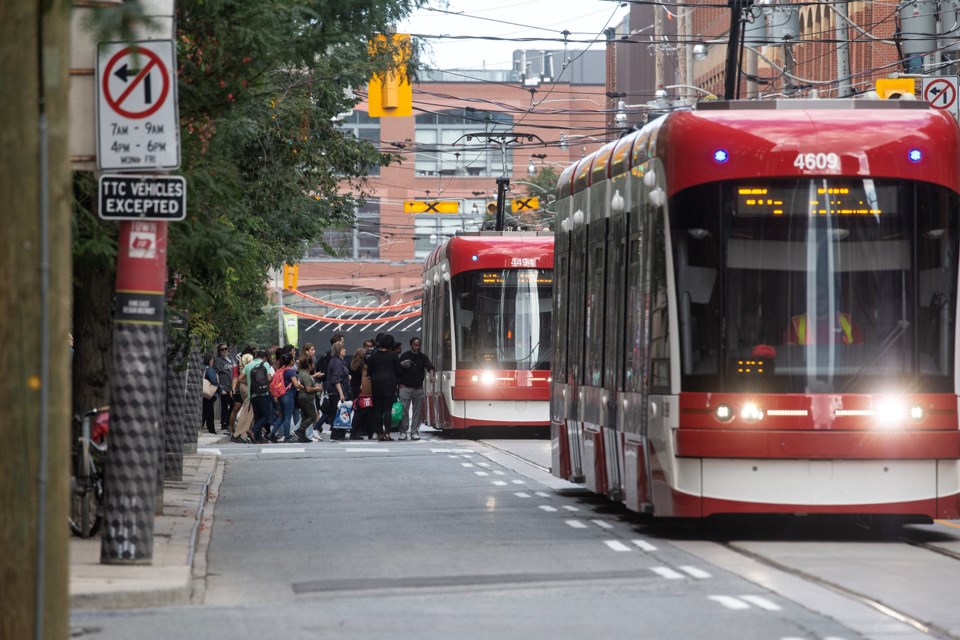All TTC special constables and fare inspectors will wear body cameras next year following a pilot program that showed the cameras “created a safer and more respectful working environment.”
The transit agency’s board must also approve the measure before its implementation.
The TTC launched a nine-month pilot program in May where 20 fare inspectors and 20 special constables wore body cameras for rotating six-week periods.
The program was initiated after the city’s ombudsman told the TTC to review its policies following a 2018 incident where three fare inspectors tackled a Black teenager and pinned him to the ground.
The constables and inspectors said the body cameras helped reduce conflicts, provided an extra layer of accountability and transparency, fostered public trust and helped reduce fare evasion, according to a new report going to the TTC board next week.
Special constables are the TTC’s equivalent of a police officer. They’re given the same enforcement powers as police when an offence happens on the transit system. Fare inspectors wait at transit stops and board buses, streetcars and subways to ensure riders pay their fare.
Over 90 per cent of special constables said they had an “excellent” or “good” experience wearing the body cameras during the pilot.
“They felt that the equipment increased their safety and improved customer compliance,” the report said. “The presence of body-worn cameras encourages both special constables and customers to be more conscious of their behaviour.”
Fare inspectors reported similar safety benefits.
“The visible presence of the cameras acts as a deterrent, reducing the likelihood of confrontations or aggressive behaviour from passengers,” the report said.
“Customers tend to be more cooperative when they are aware they are being recorded, which has led to fewer instances of verbal abuse or aggressive behaviour.”
The inspectors also said the cameras made their jobs easier. Over 60 per cent said wearing cameras “positively influenced customer behaviour.”
“Customers were more inclined to follow the inspection and ticketing process knowing that their interactions were being documented,” the report said.
The cameras have also freed inspectors from taking extensive notes because they can rely on the footage, which allows them to “spend more time conducting inspections.”
The TTC hasn’t received any complaints from the public and only a few special constables reported hearing privacy-related concerns while wearing the cameras on duty.
CUPE 5089, the union representing the constables and inspectors, is on board with the full rollout.
The TTC has budgeted nearly $1 million for the cameras. So far, it has spent $623,000 and needs to spend another $335,000 for the full rollout.
Between 2025 and 2029, the TTC will need $3.2 million to keep the program going. That includes buying more cameras in 2027, licensing costs and extra staff to review footage.
The report notes the TTC is also taking further steps to reduce fare evasion by having plainclothes officers wear body cameras starting in December.
